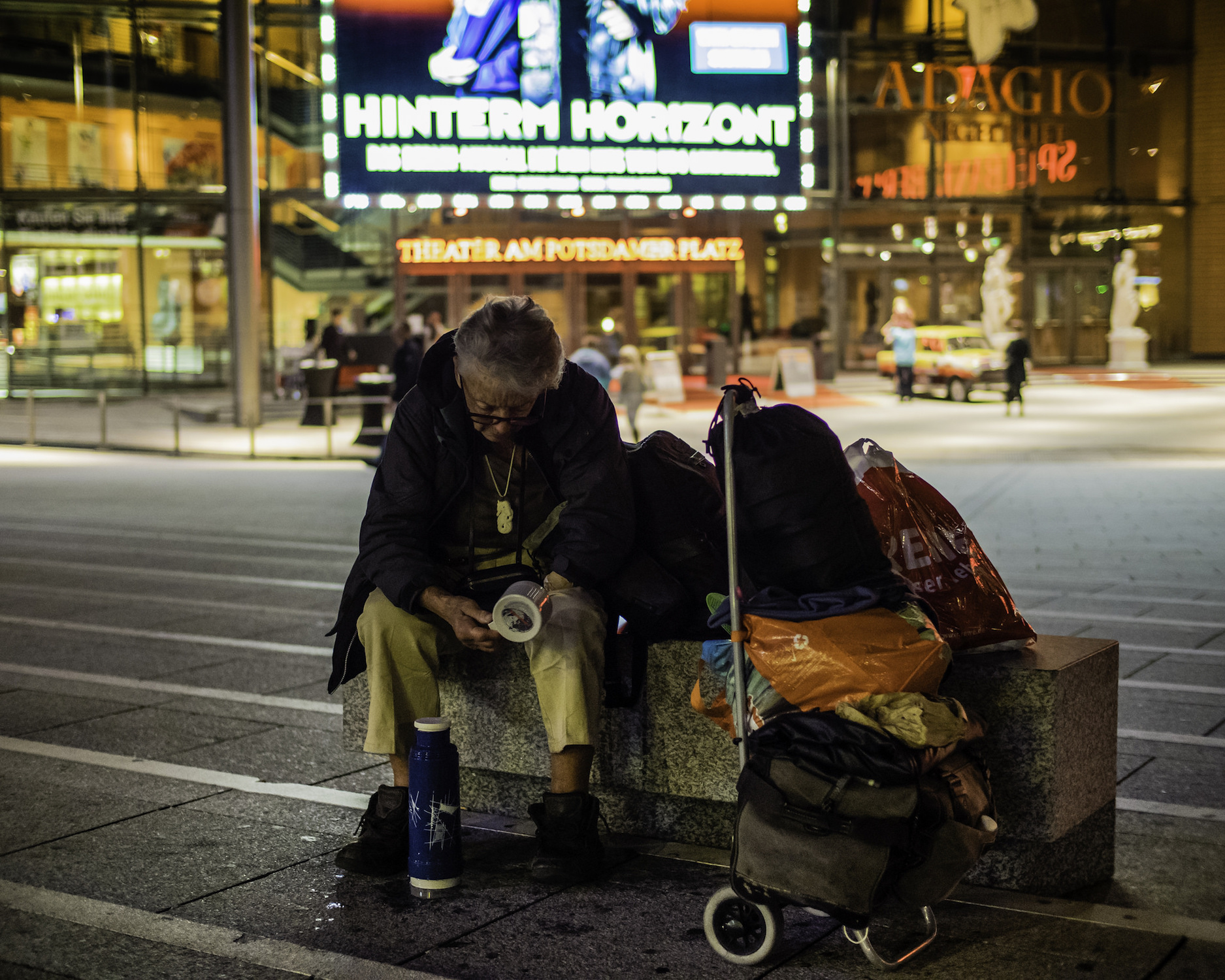According to the German government, a homeless person is someone who has no secure housing, meaning they neither own a home or have a reliable rental. These obdachlose (homeless) people need support to get access to such a home. There are two groups of homeless people in Germany: The first group are those not provided with temporary accommodation, or who pay for such accommodations themselves. The second are people who are provided temporary accommodation by local authorities, including people who are given places in a shelter.
Based on the calculations of the Federal Working Group of Homelessness (BAGW), 860,000 people were without homes in Germany in 2016, a 150 percent increase since 2014. BAGW Deputy Managing Director Werena Rosenke told The Gobe Post, “there are no homeless statistics in Germany. That is why we regularly publish our estimate of the number of homeless people as a federal association for homeless people.”
Refugees were included in the estimate for the first time, accounting for much of the increase, but the number of homeless Germany grew 25 percent over the last two years. BAGW estimates that 440,000 of the 860,000 homeless in Germany are refugees.
Ms. Rosenke explained that “the refugees are both demanders in makeshift shelters and in the housing market. When asylum-seekers are recognized as refugees, they are supposed to leave the collective housing where they were placed as asylum-seekers and provided their own living space.”
If refugees don’t have a job, they depend on public benefits like other unemployed people and have to find housing within the benefit cap.
“Many do not succeed,” Ms. Rosenke said.
Government housing policy is blamed by some for the rising homeless numbers. According to Ms. Rosenke, several factors including the insufficient supply of affordable housing and the shrinking stock of social housing plays into part.
“In addition, municipalities, federal states and the federal government have sold their own housing stocks to private investors. They have given up reserves of affordable housing. At least 11 million small apartments are missing,” she said.
However, the numbers show that current measures are just a drop in the ocean. It will take decisive political action to balance out these inequalities in the future. Today only a few humanitarian organizations try to counter the problem, but often feel left alone by politicians. Caritas, a humanitarian organization that provides aid and programs to give comfort to the homeless, agrees.
Christina Kölpin, who handles press and public relations for Caritas in Berlin, told The Globe Post, “Working with homeless people as well as with refugees is one of the core tasks of our association. Especially in refugee work, we have greatly expanded our offerings since 2015. These include counseling, medical assistance in cases of hardship, guardianship of unaccompanied minor refugees and accommodation in Berlin.”
“We can help homeless people in any way they need: A bed, three meals a day, clothes, counseling, and medical help are just part of our services,” said Urusula Jörg, a social worker for Caritas in Kaiserslautern.
“Four years ago, a man with many problems came to us. He was an alcoholic with no job and no home. He stayed in our house for two years where we gave him a job and a small flat. Today he works as one of our employees in our wood factory,” she told The Globe Post.
To successfully and sustainably decrease the number of homeless people, Ms. Jörg believes that the government should provide more assistance to help people before they lose their homes.
“We also need more flats and houses that are affordable for people with less money. These houses must be throughout the towns and not in ‘ghettos.’ A good example would be the city of Vienna in Austria. They have very good ideas on how to handle housing for these people in need.”
Ms. Rosenke agreed. “The federal and state governments must pursue an active social housing policy in order to secure affordable housing for all. At the same time, the participation of the federal government in the provision of social housing must be maintained throughout the year 2019. What is needed is the lasting social bond of housing. In order to provide affordable housing permanently, a non-profit housing sector can be an important tool. The government must create the framework and the instruments for a new public interest in housing provision,” she said.
Compiling reliable statistics would be the cornerstone of any political process to literally build the framework for more social housing.
“The introduction of nationwide housing emergency statistics would be crucial in order to record the actual extent of the problem and to be able to control it. These statistics do not exist so far and they have always been denied by the federal government in the past,” Ms. Kölpin said.






















